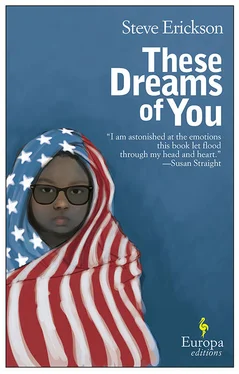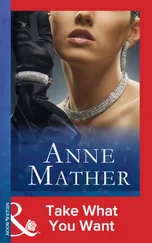About most things Zan believes that Fate — the same fate that he knows is saving for him the Ultimate Trick — unfolds as it does for better or worse. There are things never to be known; not every question in life is to be answered or even necessarily should be. Some secrets have their integrity. He’s also aware that, until Sheba’s arrival, his role in the adoption often has been that of a bystander.
Yet Zan wonders about Sheba’s mother as well. If she’s alive, then somewhere on the planet is a woman with a hole in her heart. He thinks of her lying in bed or on a mat at night wondering, before she finally sleeps, who her daughter is or where she could be. He knows that when Sheba is older, this will become a burning question, and he imagines the recriminations for not having pursued the answer.
Already Sheba resents the claims that Parker makes on Viv’s belly that she can’t. She covets his time in Viv’s womb and it becomes a weapon in the alpha-struggles between siblings that Sheba can’t win physically. “How did THIS PERSON,” she demands, pointing at Parker, “come out of YOUR TUMMY?” outraged that her brother should have had such sanctuary and that Viv could have given it. The day will come when Sheba ponders the unknown womb from where she was delivered.
The phone calls from debt-collection agencies grow more frequent. Every now and then someone can be seen through the kitchen window prowling around the property line, furtive and stealthy, sent by the bank to determine if anyone still lives in the house. Again Zan writes to the home lender formally requesting a review of the last mortgage application. The house’s fate is suspended in some national economic ether; with not a bit of the romance that the word implies, the Nordhocs are outlaws, squatters in their own home.
Zan keeps the kids out of school to watch on television the inauguration of the new president. There’s nothing like missing school to make Parker civic-minded. Zan resolves not to be so boring as to hector his children that this, after all, is history. On the television, the president raises one hand and places the other on the Bible. Zan blurts, “This is history.”
Zan receives an invitation from the University of London to lecture on the Novel as a Literary Form Facing Obsolescence in the Twenty-First Century. While Zan finds giving or hearing such a lecture too odious to contemplate, the £3,500 that the university offers lends itself to contemplation. At the radio station he reads the letter again.
Dear Alexander Nordhoc , it says, we really really do think you’re a writer. Actually the invitation doesn’t say that. When Viv and the kids come by, Zan shows it to her. “I’d do it,” he tells her, “if they invited me to talk about music.”
“What do you mean you would do it if ?” says Viv. “It’s a trip to London.”
“They don’t understand,” Zan explains, shaking the letter at her, “that I haven’t taught in two years, or been a novelist in fourteen. . ”
“You’re always a novelist, you’ve written four novels. That makes you a novelist.”
“The last was fourteen years ago.”
“The last was written fourteen years ago. But it may have been read by someone, you know,” she shrugs, “fourteen days ago.”
“It’s from James,” Zan points at the invitation.
Viv sighs, “I noticed.”
Who knows what that sigh means? Wistful, regretful, oh-please-let’s-not weary? “You sighed,” he says.
“Uh,” says Viv.
“Yeah,” he says.
She shrugs.
“Wistful? Regretful.”
“More,” she says, “oh-please-let’s-not weary.”
“I was getting to that one,” says Zan. “James” is J. Willkie Brown, as his byline reads, chosen presumably because he doesn’t want to be mistaken for the Godfather of Soul or, if he even were to consider the more vulgar “Jim,” star football players who used to beat up their women, in more innocent times before star football players murdered them — as if either point of confusion is likely, given that J. Willkie Brown is a Brit of distinctly Anglo complexion.
He also is a former lover of Viv’s, from a brief affair that happened during Zan’s first and only real separation from her, sixteen months before Parker was born. That was the Nineties when Brown still was a British expat in L.A. about to abandon music journalism once and for all, given that he hadn’t understood anything about music since 1987 and therefore it couldn’t possibly be worth writing about anymore.
Since both Zan and Viv have agreed that their separation was more Zan’s fault, he’s bothered less by jealousy over the affair than what a wrong turn it represents for Viv, the other man having gone on to great fame and success and presumably not being $135,000 in debt and foreclosed on. Following his music reportage in the Seventies and Eighties, Brown increasingly spent the last quarter century writing about politics from a more and more radical perspective while also cultivating a persona at once elegant and swashbuckling, embedding himself with insurgents and revolutionaries from Berlin to Istanbul to Karachi. His celebrity is such that the University of London has created the J. Willkie Brown Chair, occupied at the moment by J. Willkie himself.
Zan’s single triumph over Brown is that, in time-honored journalistic tradition, the world-famous journalist always longed to write a novel. While Zan knows how dubious this is, he’s not telling; it’s the only thing about Zan that there is for Brown to envy, and that now Brown invites him to lecture about the state of the novel is irresistible, even if Zan can’t help smelling a trap. “I smell a trap,” he says to Viv.
“What are you talking about?” she says.
“The novel as a literary form facing obsolescence?” James’ way of telling me how washed up I am, Zan thinks to himself.
“It’s a trip to London,” says Viv, “it’s thirty-five hundred pounds. What’s a pound worth?”
“A buck and a half?”
“So it’s better than thirty-five hundred dollars.”
“I have to pay my own expenses.”
“So you get a cheap flight and a cheap hotel and come back with a couple thousand dollars maybe.” She says, “He’s famous. It could lead to other things,” then adds quickly, “I mean, of course, you’re kind of famous too—”
“It’s O.K.,” he cuts her off.
“You are,” she insists. “In your own way.”
Zan wakes in the early hours with the usual terror and sits up in bed. He looks at Viv sleeping; the thought, he realizes, is infantile, but for the moment he entertains it anyway, that Viv wrote to J. Willkie Brown asking if there was something to be done in terms of throwing Zan this bone of an invitation to London. Infantile because the thought is so much about pride and ego when in fact it would have made utter if humiliating sense for Viv to have done just such a thing.
He considers sneaking downstairs to peruse Viv’s email, but he’s never done that and finally can’t convince himself there’s a reason to now. He collapses back into his pillow and returns to his restless sleep, listening to the rats in the vents.
Sometimes when no one else is awake, Zan returns to a new novel that no one knows he’s writing. The novel is about a middle-aged L.A. writer who, feeling discouraged and despondent — this isn’t remotely autobiographical — escapes to Berlin a few years after the fall of the Wall. The middle-aged writer befriends (or so he believes) a young German skinhead who’s besotted with the New World, except it’s a New World of white supremacists and cracked midwest Nazi messiahs.
Читать дальше











